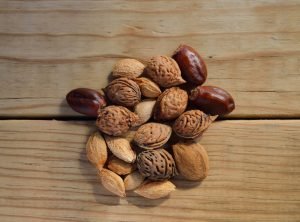
Vitamin D And Mood Disorders
Vitamin D plays an important role in bone health, reducing the risk of developing heart disease. There is a strong link between vitamin D and mood disorders like anxiety and depression.

Magnesium Deficiency And Depression
There is a link between magnesium deficiency and depression. Lack of magnesium causes numerous neuromuscular symptoms such as depression, vertigo, focal seizures, muscular weakness, irritability.

Vitamin C Deficiency And Stress Related Diseases
Vitamin C deficiency is associated with stress related diseases. Supplementation with ascorbic acid generates antidepressant effect and positively affects mood.

Mood Disorders and Omega 3 Fatty Acids
Dietary sources of Omega-3 include linseed, flaxseed, soy, corn, canola and nut oils. These plant-derived PUFAs are seen as essential as they cannot be produced internally, and therefore, require to be obtained through the diet. Animal based foods containing Omega-3 acids include fatty cold water fish such as trout, salmon, mackerel, tuna, herring as well as fish oil.
Cross-national studies show negative correlation between seafood consumption and presence of major depressive disorder (MDD), bipolar spectrum disorder, postpartum depression and cardiovascular disease.